ON Wednesday, October 20, 2021, reports emerged in the Nigerian media, alleging that Nigerian Armed Forces are yet to fully deplore the A-29 Super Tucano fighter jets procured from the United States against bandits in the North-West because of an agreement, which require Nigeria to only use the jets on terrorists and insurgents. Interestingly, the next day, Thursday, October 21, 2021, so-called bandits planted explosives on Abuja-Kaduna rail line and attack passenger train, which led to the suspension of the Abuja-Kaduna train services for almost 48 hours. On Saturday, October 23, 2021, The Economist magazine of London published a damning report captioned ‘Insurgency, secessionism and banditry threaten Nigeria.’
The report by The Economist, which is basically editorial opinion is that Nigerian army is over stretched and only ‘mighty on paper’, officers stole weapons and ‘sold to insurgents’, police are understaffed, demoralised and poorly trained’, and they ‘supplement their low pay by robbing the public.’ It concluded with the recommendation that Nigeria need ‘to beef up its police’ with the call to recruit more police by pointing out that Niger State ‘has just 4,000 officers to protect 24m people.’ The population of Niger State is about 4 million. This error, however, may not invalidate the fact that Nigeria is under policed. The woolgathering disposition of The Economists might have been responsible for such avoidable error.
Join our WhatsApp ChannelIt is not only the error in presenting the population of Niger State, but the fact that the magazine lost almost every sense of objectivity in analysing challenges of insecurity facing the country. It (The Economist) reduced the so-called report to arguing that the procurement of the A-29 Super Tucano jets is wasteful spending because ‘Local cops would be better at stopping kidnappings and solving crimes than the current federal force, which is often sent charging from one trouble spot to another. Money could come from cutting wasteful spending by the armed forces on jet fighters, which are not much use for guarding schools. Britain and America, which help train Nigeria’s army, could also train detectives. Better policing could let the army withdraw from areas where it is pouring fuel on secessionist fires.’ As far as The Economists is concerned, what is required to end banditry and protect schools in the North-West is recruitment of more police and not ‘wasteful’ spending in the procurement of jets.
In his weekly article, titled Mighty Armies on Paper, Mallam Mahmud Jega, on Monday, October 25, 2021, reminded The Economist magazine how the ‘mighty’ US army spent over $6 trillion in 20 years fighting the Talibans in Afghanistan only to lose the battle. Similarly, the ‘mighty’ British army were unable to defeat the Irish Republican Army (IRA) and end ‘The Troubles’ until ‘the signing of the Good Friday Accord in 1992.’ Mallam Jega highlighted the point that all ‘conventional armies in this world have difficulty fighting asymmetric warfare, essentially because they are not trained for it.’ This is perhaps one of the most important elements about the problem of insecurity in Nigeria, which is that to resolve it require unconventional strategies.
It is very shocking that the speculation about whether Nigerian Armed Forces should deploy the newly procured A-29 Tucano jets to fight insecurity in the country against bandits, insurgents or terrorist was given much attention. Isn’t it true that already the jets have been deployed in the North-West, in Zamfara, Kaduna and Katsina States and have produced some significant successes against the bandits? Is it even true that there is any agreement with the US Government prohibiting Nigeria from using the jets against bandits? Will US government really take steps to block initiative by Nigerian Armed Forces and Nigerian government to use the newly acquired A-29 Super Tucano jets against bandits in the North-West?
The whole speculation about the so-called agreement between Nigeria and US Government on the use of the A-29 Super Tucano jets is insulting to both Nigeria and US governments. There are so much interesting coincidences from the speculation about the so-called agreement between Nigeria and US governments on how the A-29 Super Tucano jets will be used, the attack on Abuja-Kaduna train and the report in The Economist. It is as if somebody, somewhere want to discourage Nigerian Armed Forces from fighting bandits in the North-West and therefore want to halt any progress that is being achieved. Recent public debate in the country would seem to be targeted at demoralising Nigerian Armed Forces from fighting the bandits in the North-West and the attack on the Abuja-Kaduna train is being used to emphasise the sophistication of the bandits. If there is anything that truly confirms that bandits are terrorists, the attack on Abuja-Kaduna train attack is it. Afterall, are terrorists not people who threaten the lives of innocent citizens? What is more threatening than the activities of these bandits in the North-West?
Interestingly, apologists and self-appointed counsels to the Bandits, such as Sheikh Ahmed Gumi are becoming more confident, and are irresponsibly mobilising opposition against declaring bandits’ terrorists. All the studies about insecurity and banditry in Nigeria only confirmed that the bandits operating in the North-West and North-Central have all the characteristics of terrorist groups. For instance, a study by Dr. Murtala Ahmed Rufa’i, presented at the 15th Usman Danfodio University, Sokoto Seminar Series, on Thursday, September 9, 2021, titled, I am a Bandit – A Decade of Research in Zamfara State Bandit’s Den, reported that bandits are armed groups with ‘contacts across the Sahel, particularly Libya and Mali’, having ‘huge capital’, ‘in possession of more that 500 AK 47 guns’, and ‘own sophisticated weapons like RPGS and Anti-Aircraft.’ The report indicated that ‘there are over 60,000 weapons in circulation’ in the North-West alone.
Any debate about the challenges of insecurity and banditry in Nigeria, which misses this reality is simply uninformed and therefore unhelpful. The arrogance of The Economist, which made them to imagine that they can condemn Nigerian Armed Forces and Government based on some uninformed sentiments reflects the old ideological mindset that was used in the 1980s to impose Structural Adjustment Programmes, leading to the destruction of education and health sectors in most African countries, including Nigeria. In fact, the current problems of insecurity and banditry in Nigeria is partly a direct consequence of the collapse of the country’s educational system, which is why there is estimated over 12 million Nigerian children out of school.
There are many recent studies, which have highlighted the objective reality about Nigeria’s security challenges, based on which good recommendations towards addressing the challenges were made. One of such study was also the presentation by an international consulting firm, Nextier SPD (Security, Peace, and Development) to the 27th Nigerian Economic Summit of October 2021, titled Stemming the Tears – A Pragmatic Approach to Solving Nigeria’s Security Challenge. The study highlighted that ‘in the twelve months to September 2021, Nigeria recorded 890 violent incidents resulting in 3,787 deaths, 340 injured persons, and 2,542 kidnapped persons…A further breakdown of the figures shows that banditry is currently the leading conflict type in Nigeria in terms of number of incidents (606 or 68.1 percent) and number of deaths (2,470 or 65.2 percent), number of injured (211 or 62.1 percent) and number of persons kidnapped (2,487 or 97.8 percent).’
The study by Nextier proved the point that the biggest security challenge facing Nigeria today is banditry. At least 6 innocent lives are killed everyday by bandits. Nextier acknowledges that the recent intensification of the fight against bandits, which made ‘authorities in Katsina, Sokoto and Zamfara States imposed a communications blackout in several communities in the states to stop communication among bandits and between them and their informants. Also there has been a squeeze on fuel and food supplies to forests and other hide-outs of the armed gangs. In addition, the limitation has been imposed on cattle movement and the opening hours of local markets in the worst-hit areas by banditry. Those who smuggle fuel to bandits have been arrested. Hundreds of land and aerial troops have been executing the offensive since early September to stop the surge in mass abductions, community raids and sexual violence in the North-West. To further boost military efforts aimed at halting violence in both the North-West and North-Central, the governments of Zamfara, Sokoto, Kebbi, Kaduna, Niger, Katsina and Nasarawa States have agreed to recruit 3,000 special vigilantes in the troubled regions.’
The point is, more than before, since July 2021 with the arrival of the recently acquired A-29 Super Tucano jets and their deployment, Nigerian Armed Forces have been achieving successes in fighting bandits in the North-West. As a result of the successes, Nextier noted that bandits are migrating and launching attacks in areas ‘initially peaceful’, which may partly explain the recent attack on the Abuja-Kaduna rail line and train services of Thursday, October 21. A major challenge is the need to build trust to strengthen collaboration between the Nigerian Armed Forces and citizens to end activities of bandits. In the submission of Nextier, ‘the military needs to win “hearts and minds” and build trust with the community to access the information. This strategy will demand significant effort and patience from the military, given the current state of the relationship.’
It is very easy to reduce these challenges to commentaries and opinion analysis. Those who aspire to use the security challenges facing Nigeria to gain cheap recognition or political advantages may want to create doubts about the ability of Nigerian Armed Forces to fight bandits or effectiveness of the current strategy with all its successes. Commentaries and opinions that have the objective of gaining cheap recognition or political advantage tend to dismiss or ignore all the body of knowledge being generated in the country about the national security challenges, which is mostly by patriotic non-partisan and non-state actors. A careful review of all the new body of knowledge will for instance recognise that resolving the problem of trust between citizens and the Nigerian Armed Forces is a critical success factor.
This was also confirmed in a study by Prof. Aly Verjee, senior Advisor to the Africa Centre at the United States Institute for Peace (USIP) and Prof. Chris Kwaja of the Centre for Peace and Security Studies, Modibbo Adama University of Technology, Yola, Nigeria, in the publication, An Epidemic of Kidnapping: Interpreting School Abduction and Insecurity, which was published in the African Study Quarterly, Volume 20, Issue 3 of October 2021. Verjee and Kwaja specifically noted that ‘Nigerians have good reason to distrust the police and the army. A long-enduring “crisis of legitimacy” in the police…has persisted for decades, because of the entrenched corruption, poor service delivery, and predatory behaviour.’ All the studies, so far agree that resolving the problem of trust between citizens and security officials, especially the police will require some fundamental reforms, which is beyond the simple issue of recruiting more personnel. The whole debate about whether to have state police or not is about the scope of reform to be carried out.
The major disconnects in the public debate about security challenges facing the country is that all the important body of knowledge, which ordinarily should assist to guide positions of Nigerian citizens and government are ignored. In the circumstance, public debate become distant from knowledge, engagement with public policy reduced to sentiment, and every challenge facing the country, including security problem, such as banditry easily get politicised. Criticisms and campaigns against APC and President Buhari is hardly supported with alternative proposals. This is the main reason why any defense of APC and President Muhammadu Buhari’s policy initiative is being equated to supporting ‘imposition of Fulani hegemony on Nigerians’ even by some supporters of APC leaders. Public debate then become highly toxic. The fundamental question, which must be asked is, how is APC responding to these developments?
This is not about propaganda. It is about the future of the country and about commitment of APC leaders to facilitate initiatives that can support Nigerians to restore citizens’ humanity based on application of knowledge to shape public debates in the country. Unless and until, APC, both as a party and government, can roll out initiatives to direct public debates in the country based on application of contemporary knowledge about existing problems, highly negative interpretation of government initiatives or so-called lack of it will continue to drive public conversation in the country. Inability to take advantages of existing body of knowledge in the country is also responsible for why some leading public officials of government could make illogical statements claiming so-called differences between bandits and terrorists. With all the knowledge that bandits kill at least 6 Nigerians every day, what could be more terrifying?
The reality is that information management in the country is taken for granted and capacity to create the right messages that inspire citizens to believe in APC and its government is weak. What initiatives should APC take to strengthen the capacity of appointed and elected functionaries to be able to create the right messages and efficiently disseminate them? Is the party and government information protocols and their functionaries knowledgeable about the operative strategy being used to address the country’s security challenges? Is such a knowledge driven by strong coordination through which both the party, government structures and functionaries at all levels are driven by the insatiable quest to find solutions to every manifest problem?
Against the background of years of bad governance in Nigeria, characterised by accumulated anger of citizens, inability of both the party, government structures and functionaries at all levels to drive national processes of information management based on commitment to finding solution to manifest problems will continue to weaken capacity to create the right messages and effectively disseminate them. Such a failure could have relegated APC and its government to exist in the shadow of all previous governments who created the problems in the first place.
Should this be the case, how can APC and its government, redesign information management strategy based on which it can moblise Nigerians to commit themselves to the agenda of change as being implemented by the APC Federal Government led by President Buhari? What are the important steps needed to commence the process of redesigning information management in the country and engender commitment of all functionaries of the party and government to the institution of a new regime of problem-solving information management in the country? Under the new regime of problem-solving information management, can APC and its governments develop a new reporting template, which ensures that reports of events by all credible media platforms conform to some minimum verifiable standards? Can the new regime of problem-solving information management seek to strengthen national compliance to existing statutory provisions in the country?
Is APC and its government able to develop some coordination structure with the objective of creating both generic and implied messages aimed at communicating initiatives of APC governments to resolve challenges of insecurity? It is important that the capacity of designated structures and functionaries to promote messages that mobilises Nigerians, which ensures that the understanding and causes of events forms integral part of messages as well as recommendations of what is required to solve any possible associated problems triggering the event.
These are not hypothetical issues. They are also not about propaganda. It is about the capacity of political leaders and actors to be honest in mobilising responses to challenges. The current structure of information management is part of the problem and must change if APC and its government is to effectively mobilise Nigerians to support initiatives to resolve national security challenges. Failure to recognise this may continue to damage the electoral prospect of APC. Engineering the evolution of the new regime of problem-solving information management is central to the resolution of Nigeria’s security challenges.
Part of the objective of evolving a new problem-solving information management is to ensure synergy of activities of the party, government and as much as possible major national players in the business of mobilising Nigerians to contribute towards resolving national challenges. In the context of such a coordinated strategy, there should be some regular consultations to review national challenges and develop common strategies. Part of the task of reviewing national challenges would require that true accounts of events and their causes are established and based on that some agreements reached regarding what is required to address problems, which should cover actions required from non-governmental actors.
Without doubt there exist many initiatives driven by some of the existing established structures of government, which needs to be mainstreamed as part of the new problem-solving information management. The campaign by National Orientation Agency, for instance, of change begins with me is one of such initiatives. Perhaps, it needs to be further strengthened and improved such that it highlights the new secure Nigeria being envisioned. How can the change begin with me campaign, also for instance, fit into the strategy of mobilising Nigerians to support the fight to end insecurity in the country, in all its ramification? To achieve that will require some radical reforms of many of the structures of government facilitating the process of information management, including the National Orientation Agency.
One problem of information management in the country is funding. Often without funding no initiative is taken and most times the funding is inflated beyond rational reasoning. New approach and orientation are required, which should redesign the work of information managers in all spheres. The new regime of problem-solving information management should be oriented based a commitment to weed out all the superfluous costs that adds no value to the process of information dissemination. In addition, government broadcast stations such as Nigerian Television Authority (NTA), Federal Radio Corporation of Nigeria (FRCN), Voice of Nigeria (VON) and News Agency of Nigeria (NAN), among other, should be encouraged to create customised programmes, which should seek to specifically facilitate interface between government officials and citizens involved in the field of enquiry about contemporary challenges?
In the context of facilitating engagement between government officials and citizens working in the field of enquiry about critical challenges facing the country, for instance, at least NTA and FRCN with all their national coverage should have a weekly or daily programes at prime times to undertake public reviews of challenges and progress being made to fight insecurity in the country. Based on such reviews, both designated officials of Nigerian security services and non-state actors who have undertaken studies on Nigeria’s security challenges can feature and assist in guiding national debates. This could also facilitate uptake of important recommendations from reports such as those made by Dr. Rufa’i, Nextier, Profs. Verjeer and Kwaja, and many similar studies by important policy cites in the country.
The point is, so long as public debates in the country are not guided by knowledge, citizens engagement with public policy will continue to be reduced to sentiment, and every challenge facing the country, including security problems, such as banditry would be politicised, and as such public conversation in the country will remain toxic. How APC can facilitate the reform of information management structures in the country to successfully mobilise Nigerians to support government initiatives will largely determine the electoral viability of the party. Once APC continue to allow speculative and false national debates such as the issue of unfounded agreement between Nigeria and US government on the use of the A-29 newly acquired Super Tucano jets, it is indicative of a weak communication management framework, which may only worsen the challenges facing the country. Inability to use knowledge to guide public debate is what confer legitimacy to so-called editorial opinion by arrogant news medium such as The Economist based on old ideological mindsets. Resolving the security challenge facing the country is about winning the ‘hearts and minds’ of Nigerians!
This position does not represent the view of any APC Governor or the Progressive Governors Forum

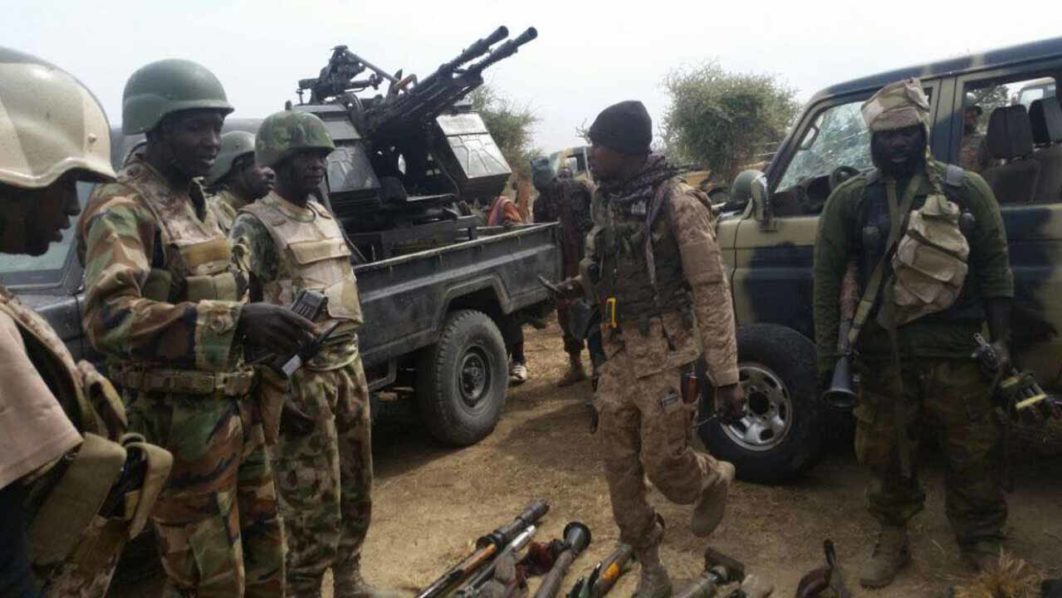


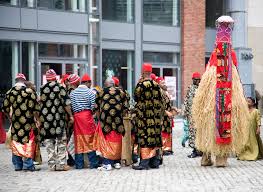
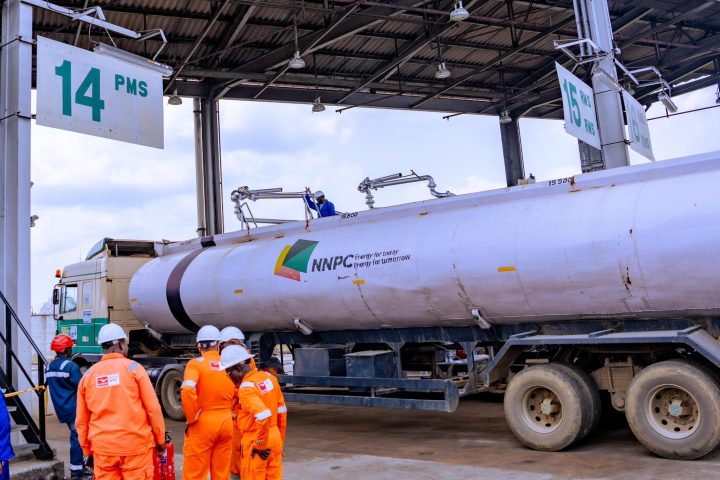
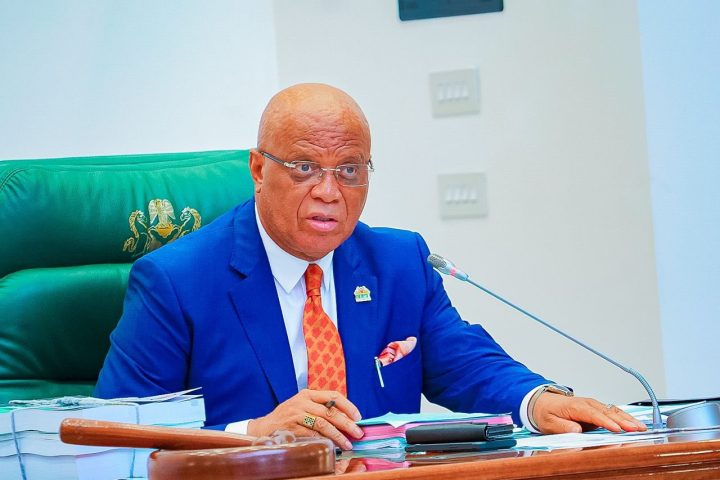



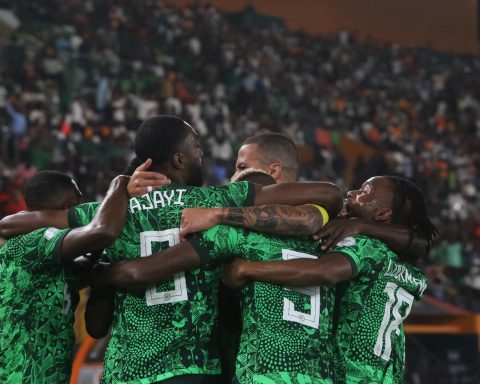




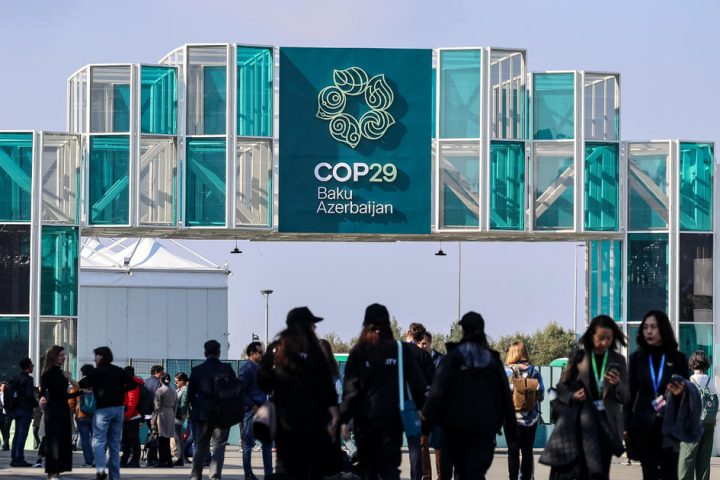

Follow Us